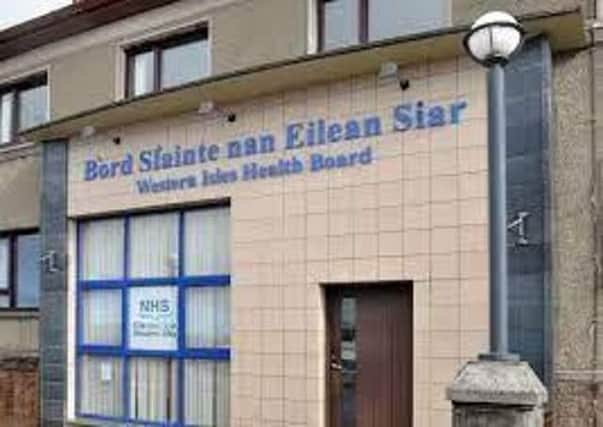Health board defend nursing ‘cut back’


It comes after concern was raised by Epilepsy Scotland, the MS Society Scotland and Parkinson’s UK Scotland that the new direction implemented by the board represents a “cut back”.
The board has moved to replace specialist nursing provision covering each of the conditions and replace it with an overarching advanced clinical nurse practitioner, with access to leading specialists in Glasgow.
Advertisement
Hide AdAdvertisement
Hide AdA local campaign group Neuro Hebrides is seeking to reverse the decision by the board (See The Big Read pages 20 and 21).
A board spokesperson said: “NHS Western Isles is developing a safer, prompter, and more sustainable service for all people with neurological conditions in the Western Isles. This will offer a greater continuity of service and will be supported by the neurology service in Glasgow.
“There is a very good evidence base for the role of generic neurology nurse specialists. Our colleagues in NHS Shetland have in fact also developed a successful model with a generic neurology nurse specialist.
“Such roles, in addition to serving patients with Epilepsy, Multiple Sclerosis and Parkinson’s, also vastly improve access and support for people with a range of many other significant conditions, such as Neuropathies, Muscle Dystrophies, Myasthenia Gravis, Headaches, Ataxias, Myelitis, and Neurogenetic conditions. This model will hence provide equitable care for all people needing specialist neurological nursing support.”
Advertisement
Hide AdAdvertisement
Hide AdThey said a similar model of working already exists in the islands with MacMillan Cancer Care, where a local nursing team works with specialists at a national level.
“The neurology team in NHS Greater Glasgow and Clyde has been involved in the development of the model, with clear links and support mechanisms,” explained the spokesperson.
“Dr Saif Razvi, Lead Clinician for Neurology, believes that the model will be prompter for patients, allow cross cover and safety and improve access to support for people with Epilepsy, Multiple Sclerosis and Parkinson’s, as well as all other neurological conditions in the Western Isles.”
The issue has been raised by Highland MSPs Rhoda Grant from the Labour party and Conservative Donald Cameron, who has written to the Scottish Government cabinet secretary for health Humza Yousaf to express his concern.
Advertisement
Hide AdAdvertisement
Hide Ad“Our aim should be to help people with conditions like MS, epilepsy and Parkinson’s, and their families and carers, to lead as normal and fulfilled a life as possible,” said Mr Cameron.
“This is a specialist area which requires practitioners with expert knowledge in order to provide the best outcomes for the people concerned.
“I very much hope that ministers heed the warnings from Epilepsy Scotland, the MS Society Scotland and Parkinson’s UK Scotland, and ensure that sufficient levels of specialist nursing provision are made available in the Western Isles”
Mrs Grant added: “I am extremely disappointed about the withdrawal of this essential support. Christine Stewart and others fought a long hard battle to get this service in the first place.
Advertisement
Hide AdAdvertisement
Hide Ad"People suffering from MS and other neurological conditions have to travel to Glasgow for specialist care, therefore the local support provided by an MS nurse is incredibly important. We all know traveling when unwell is difficult, therefore services should be as local as possible.
“I am also disappointed that there has be no consultation regarding this and I hope the NHS Board see sense and reinstate this post.”